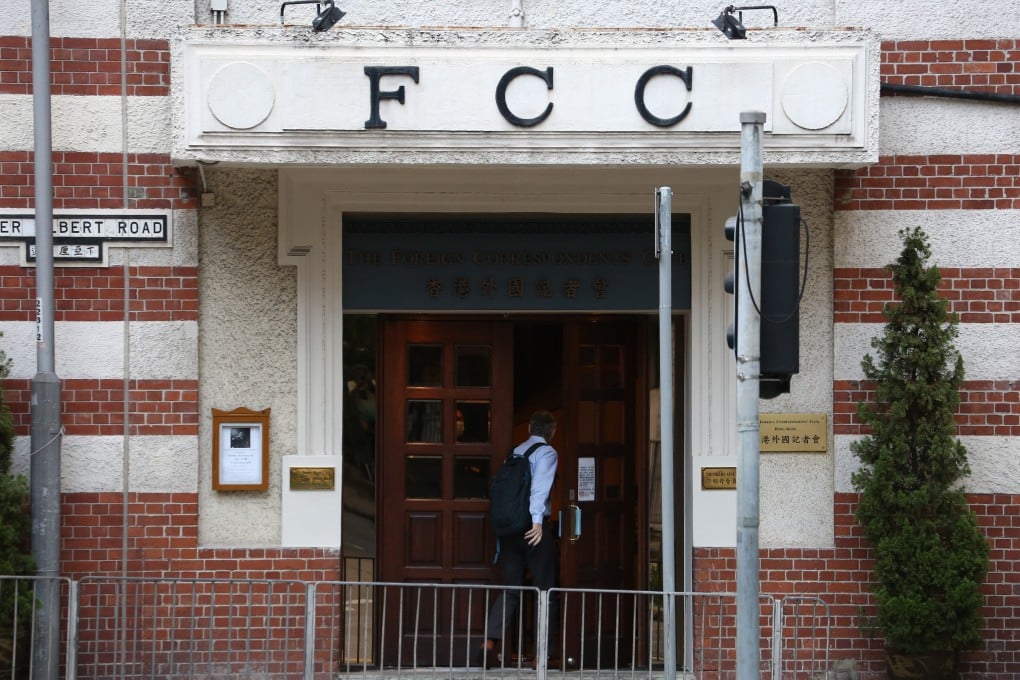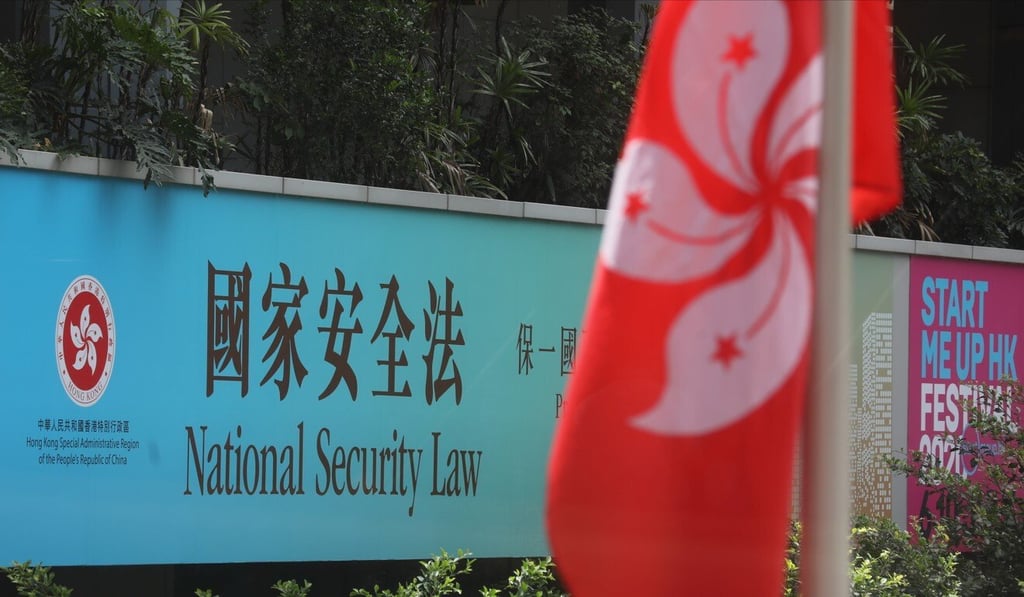Advertisement
Beijing accuses Hong Kong’s Foreign Correspondents’ Club of ‘sowing discord’ over state of press freedom
- The accusations followed an FCC survey in which most respondents said the media environment had ‘changed for the worse’ since the imposition of the national security law
- The results prompted Beijing to accuse the club of ‘walking away from its professional ethics’ and ‘smearing’ Hong Kong’s press freedom
Reading Time:3 minutes
Why you can trust SCMP
47

Beijing has accused the Foreign Correspondents’ Club (FCC) in Hong Kong of abandoning its professional ethics and “sowing discord” over the state of press freedom in the city.
The condemnation on Friday from the Hong Kong office of China’s foreign ministry was triggered by an FCC survey of 99 journalists in which 83 said the working environment for the media had “changed for the worse” since Beijing imposed the national security law in June last year.
More than 90 per cent of respondents also indicated concern about a looming law against “fake news” which the government wants to introduce to combat doxxing, hate speech and misinformation amid the coronavirus pandemic, and after the social unrest of 2019.
Advertisement

“We urge the FCC to stop sowing discord and refrain from interfering with the law-based governance of [the Hong Kong administration] and [the city’s] rule of law in the name of press freedom,” the office of the foreign ministry’s commissioner said in a strongly worded statement.
Advertisement
“The FCC has walked away from its professional ethics. Its misleading report, based on just a few responses, is neither representative nor credible. Its smearing of Hong Kong’s press freedom and playing-up of the chilling effect are interference in Hong Kong affairs.”
Advertisement
Select Voice
Choose your listening speed
Get through articles 2x faster
1.25x
250 WPM
Slow
Average
Fast
1.25x